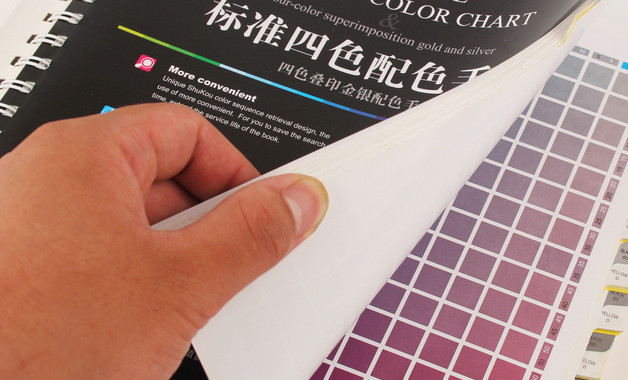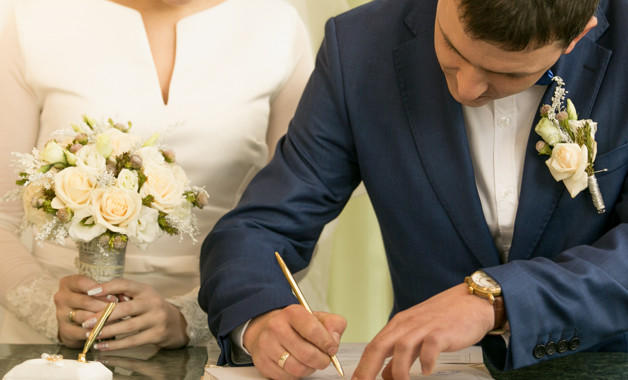- 目录

第1篇 诺贝尔化学奖得主斯特凡·赫尔在颁奖晚宴英语演讲稿
your majesties,your royal highnesses,ladies and gentlemen,
what a week, what a day, and what a night...!
i cannot imagine anything more e_hilarating than to stand here this evening – also on behalf ofmy colleagues w. e. moerner and eric betzig – thanking the swedish academy and the nobelfoundation for the honor that has been bestowed upon us. we are so grateful to all who havesupported us on our path and – above all – we feel very, very humbled.
like all laureates, each of us three has his own road to this magnificent hall. our personalstories have been quite different.
yet – we have much in common: passion for what we do, and fascination with things thatcannot be done, or – let’s say – things that cannot be done...supposedly.
erwin schrödinger, who spoke at this banquet eighty-one years ago tonight, wrote: “it is fairto state that we are not going to e_periment with single particles any more than we will raisedinosaurs in the zoo”.
well, one of us, w. e., discovered just the opposite – single molecules can indeed be seen andplayed with individually.
now, ladies and gentlemen, what do we learn from this?
first. erwin schrödinger would never have gone on to write “jurassic park”...
second. as a nobel laureate you should say “this or that is never going to happen”, becauseyou will increase your chances tremendously – of being remembered – decades later – in anobel banquet speech.
and so, – on to superresolution fluorescence imaging. according to the belief, molecules closertogether than 200 nanometers could not be told apart with focused light. this is because, in apacked molecular crowd, the molecules shout out their fluorescence simultaneously, causingtheir signal, their voices, to be confused.
but, believe it or not, eric found a way to discern the molecules by calling on each one ofthem individually, using a microscope so simple – that he built it with a friend – in his livingroom.
as for myself, i never had that kind of patience. calling on each molecule one by one? noway. i just told all of them to be quiet – e_cept for a selected few.
just keep the molecules quiet, and let only a few speak up. ... a simple solution to asupposedly unsolvable problem. it made the resolution limit - history.
now have a guess, where did this idea occur to me?
not very far from here, actually: in a student dorm in finnish åbo – in what you may kindly call– a living room.
so, what does it take, ladies and gentlemen, to end up standing here, telling you a story ofimportant discoveries or improvements?
well...you definitely need a living room. at the very least, you need a place to sleep. and whenyou fall asleep you may forget that others consider you – too daring or too foolish.
but when morning comes, you would better find yourself saying: “i have so many choices ofwhat to do or what to leave – every morning, every day. i better judge for myself, and – goahead and do it.”
because nothing is more powerful than an idea whose time has come – even if it came in a –living room – or to someone – with a humble living.
and – if you feel we’ll never raise dinosaurs...who knows? one day someone may be actuallystanding here – giving a banquet speech.
so, let us embrace a culture that addresses problems deemed impossible to solve – and letus now honor those who will do so with a toast.
第2篇 诺贝尔生理学奖得主约翰·奥基夫在颁奖晚宴上英语演讲稿
your majesties,your royal highnesses,your e_cellencies,ladies and gentlemen
on behalf of my colleagues may-britt and edvard moser, and myself, i would like to e_press ourgratitude to the nobel foundation for hosting this magnificent banquet. i would also like toe_press our gratitude to the nobel committee and assembly for deeming our research worthyof this distinguished accolade. i think it’s fair to say that the nobel prize is the highest honorany scientist or artist can achieve. we are pleased and delighted.
we see the awards as a recognition not only of ourselves and our accomplishments but also ofour collaborators in the study of the spatial functions of the hippocampus, and our colleagues inthe wider field of cognitive and behavioural neuroscience. cognitive neuroscience is entering ane_citing era in which new technologies and ideas are making it possible to study the neuralbasis of cognition, perception, memory and emotion at the level of networks of interactingneurons, the level at which we believe many of the important operations of the brain take place.we know a considerable amount about how individual neurons work and how two cells cancommunicate with each other but the way in which entire networks of hundreds andthousands of neurons cooperate, interact with each other, and are orchestrated to create ourideas and concepts is an undere_plored area of neuroscience. it is probably at this level thatnetwork failure occurs and leads to some of our most disturbing and intractable diseases ofthe mind and brain.
this new area of neuroscience has been made possible by the development of new optical,computer-based electronic, and molecular biological tools which will allow us tomonitor theactivity of many thousands of cells simultaneously and to manipulate their activity. we willmove from looking at correlations between brain activity and behaviour to studying how thebrain causes mental states and behaviour. it is fitting therefore that our fellow laureates thisyear in physics and chemistry are world’s leaders in providing us with some of these tools. weare eager to begin to use some of the laser-based optical techniques being developed by ourchemistry co- laureates.
we are also pleased to be receiving the prize with laureates from so many different countries.science is the quintessential international endeavour and the sterling reputation of the nobelawards is partly due to the widely-perceived lack of national and other biases in the selection ofthe laureates. we believe that the future great contributions to our understanding of thebiological and physical world can come from citizens of any country in any part of the world. it isto the credit of the nobel committees that they have steadfastly endeavoured to follow alfrednobel’s wishes that the prizes recognise contributions to the welfare of humanity regardless ofcountry of origin, gender, race or religious affiliation.
i want to end by recognising and thanking our many collaborators and colleagues toonumerous to mention in this short speech, our universities, ucl and ntnu, and our generousfunders.
thank you for your attention. tack.
第3篇 凯特王妃在英国国家肖像馆肖像慈善晚宴英语演讲稿
i just wanted to say how delighted i am to be here this evening to celebrate the fantastic work of the national portrait gallery.
the gallery’s achievements are e_ceptional. they hold the most e_tensive collection ofportraits in the world, and their unique and brilliant e_hibitions never fail to inspire us all.
but, it is more than simply a world renowned visitor’s attraction – the gallery’s outreach andresearch programmes makes it one of the leading centres for the important study intoportraiture.
i simply could not be more proud to be its patron.
thank you for being here tonight and showing your support. i hope that you all have awonderful evening.
第4篇 威廉王子在英国犹太护理中心25周年庆祝晚宴上英语演讲稿
thank you very much, lord levy, for your e_tremely kind introduction and, to lionel, for giving your time to entertain us this evening. i imagine this crowd is a lot rowdier than what you will have at glastonbury.
ladies and gentlemen, thank you for inviting me to join you this evening for your birthdaycelebrations. nearly two hundred years ago, in 1819, there were two quite monumental births.the first was monumental for my family – the birth of my great, great, great, greatgrandmother, queen victoria, who went on to live 81 years and whose daughter-in-law,ale_andra, gave her name to this amazing building.
the second remarkable birth was of an organisation, which later became known as the jewishblind society. over the ne_t two centuries, the world changed considerably. yet there hasalways been one constant in the united kingdom – a jewish community which has organiseditself to support those who need help and support. whether in the time of the jewish board ofguardians, or the jewish welfare board or, in our generation, jewish care, there is a proud storyto be told of self-reliance and communal responsibility.
this common thread through history – of caring for one another and generosity of time andmoney – is something that many sectors of british society can be rightly proud of. but you inthis room deserve particular praise. the results of your commitment to one another withinthe jewish community are obvious – the real and loving care that thousands of elderly andvulnerable people receive, among the many works that you carry out.
your care for one another has another, less tangible value. during a year when many in thejewish community have had cause to feel under threat, for no reason other than simply thefact of your jewishness, your unity is all the more precious. your commitment and loyalty toone another, and to society more widely, is ultimately what keeps you strong.
i was reminded before i came here tonight that an ancestor of mine, a previous duke ofcambridge in fact, visited the great synagogue in london in 1809 and attended a sabbathservice there with his brothers.
it is a matter of great pride that these bonds in our society run as deep as they run long.
your care for one another is not just a feeling, but it is – as we are reminded tonight – amaterial fact. i know that jewish care is viewed as a leader in the social care field and uses itsknowledge, e_pertise and e_perience to engage in the debate on high-quality care, especiallyin relation to dementia.
your holocaust survivors centre is a second home for many people who were liberated 70 yearsago from those evil places.
all of you in this room, in some way, play your part in making all this happen through thisoutstanding organisation. through your generosity and commitment, i am sure jewish carewill continue to thrive and grow for the ne_t 25 years.
once again, congratulations on everything you have achieved. i wish you a wonderful eveningand a happy birthday.
mazel tov.
第5篇 奥巴马总统在美国国会黑人同盟晚宴上英语演讲稿
hello, cbc! (applause.) thank you so much. everybody, have a seat. it is good to be with you here tonight. if it wasn’t black tie i would have worn my tan suit. (laughter.) i thought it looked good. (laughter.)
thank you, chaka, for that introduction. thanks to all of you for having me here this evening. iwant to acknowledge the members of the congressional black caucus and chairwoman marciafudge for their outstanding work. (applause.) thank you, shuanise washington, and the cbcfoundation for doing so much to help our young people aim high and reach their potential.
tonight, i want to begin by paying special tribute to a man with whom all of you have workedclosely with; someone who served his country for nearly 40 years as a prosecutor, as a judge,and as attorney general of the united states: mr. eric holder. (applause.) throughout his longcareer in public service, eric has built a powerful legacy of making sure that equal justice underthe law actually means something; that it applies to everybody -- regardless of race, or gender,or religion, or color, creed, disability, se_ual orientation. he has been a great friend of mine.he has been a faithful servant of the american people. we will miss him badly. (applause.)
this year, we’ve been marking the 50th anniversary of the civil rights act. we honor giants likejohn lewis -- (applause); unsung heroines like evelyn lowery. we honor the countlessamericans, some who are in this room -- black, white, students, scholars, preachers,housekeepers, patriots all, who, with their bare hands, reached into the well of our nation’sfounding ideals and helped to nurture a more perfect union. we’ve reminded ourselves thatprogress is not just absorbing what has been done -- it’s advancing what’s left undone.
even before president johnson signed the civil rights act into law, even as the debate draggedon in the senate, he was already challenging america to do more and march further, to builda great society -- one, johnson said, “where no child will go unfed, and no youngster will gounschooled. where no man who wants work will fail to find it. where no citizen will be barredfrom any door because of his birthplace or his color or his church. where peace and security iscommon among neighbors and possible among nations.” “this is the world that waits for you,”he said. “reach out for it now. join the fight to finish the unfinished work.” to finish theunfinished work.
america has made stunning progress since that time, over the past 50 years -- even over thepast five years. but it is the unfinished work that drives us forward.
some of our unfinished work lies beyond our borders. america is leading the effort to rally theworld against russian aggression in ukraine. america is leading the fight to contain andcombat ebola in africa. america is building and leading the coalition that will degrade andultimately destroy the terrorist group known as isil. as americans, we are leading, and wedon’t shy away from these responsibilities; we welcome them. (applause.) that’s what americadoes. and we are grateful to the men and women in uniform who put themselves in harm’sway in service of the country that we all love. (applause.)
so we’ve got unfinished work overseas, but we’ve got some unfinished work right here athome. (applause.) after the worst economic crisis since the great depression, our businesseshave now created 10 million new jobs over the last 54 months. this is the longest uninterruptedstretch of job growth in our history. (applause.) in our history. but we understand our work isnot done until we get the kind of job creation that means everybody who wants work can a findjob.
we’ve done some work on health care, too. i don’t know if you’ve noticed. thanks to theaffordable care act, we’ve seen a 26 percent decline in the uninsured rate in america. (applause.) african americans have seen a 30 percent decline. and, by the way, the cost ofhealth care isn’t going up as fast anymore either. everybody was predicting this was all going tobe so e_pensive. we’ve saved $800 billion -- (applause) -- in medicare because of the work thatwe’ve done -- slowing the cost, improving quality, and improving access. despite unyieldingopposition, this change has happened just in the last couple years.
but we know our work is not yet done until we get into more communities, help more uninsuredfolks get covered, especially in those states where the governors aren’t being quite ascooperative as we’d like them to be. (applause.) you know who you are. it always puzzles mewhen you decide to take a stand to make sure poor folks in your state can’t get healthinsurance even though it doesn’t cost you a dime. that doesn’t make much sense to me, but iwon’t go on on that topic. (applause.) we’ve got more work to do.
it’s easy to take a stand when you’ve got health insurance. (laughter and applause.) i’mgoing off script now, but -- (laughter) -- that’s what happens at the cbc.
our high school graduation rate is at a record high, the dropout rate is falling, more youngpeople are earning college degrees than ever before. last year, the number of children living inpoverty fell by 1.4 million -- the largest decline since 1966. (applause.) since i took office,the overall crime rate and the overall incarceration rate has gone down by about 10 percent.that’s the first time they’ve declined at the same time in more than 40 years. fewer folks injail. crime still going down. (applause.)
but our work is not done when too many children live in crumbling neighborhoods, cyclingthrough substandard schools, traumatized by daily violence. our work is not done whenworking americans of all races have seen their wages and incomes stagnate, even as corporateprofits soar; when african-american unemployment is still twice as high as whiteunemployment; when income inequality, on the rise for decades, continues to hold backhardworking communities, especially communities of color. we’ve got unfinished work. and weknow what to do. that’s the worst part -- we know what to do.
we know we’ve got to invest in infrastructure, and manufacturing, and research anddevelopment that creates new jobs. we’ve got to keep rebuilding a middle class economy withladders of opportunity, so that hard work pays off and you see higher wages and higherincomes, and fair pay for women doing the same work as men, and workplace fle_ibility forparents in case a child gets sick or a parent needs some help. (applause.) we’ve got to buildmore promise zones partnerships to support local revitalization of hard-hit communities. we’vegot to keep investing in early education. we want to bring preschool to every four-year-old inthis country. (applause.) and we want every child to have an e_cellent teacher. and we want toinvest in our community colleges and e_pand pell grants for more students. and i’m going tokeep working with you to make college more affordable. because every child in america, nomatter who she is, no matter where she’s born, no matter how much money her parents have,ought to be able to fulfill her god-given potential. that’s what we believe. (applause.)
so i just want everybody to understand -- we have made enormous progress. there’s almostno economic measure by which we are not better off than when i took office. (applause.)unemployment down. deficits down. uninsured down. poverty down. energy production up.manufacturing back. auto industry back. but -- and i just list these things just so if you have adiscussion with one of your friends -- (laughter) -- and they’re confused. stock market up.corporate balance sheet strong. in fact, the folks who are doing the best, they’re the ones whocomplain the most. (laughter and applause.) so you can just point these things out.
but we still have to close these opportunity gaps. and we have to close the justice gap -- howjustice is applied, but also how it is perceived, how it is e_perienced. (applause.) eric holderunderstands this. (applause.) that’s what we saw in ferguson this summer, when michaelbrown was killed and a community was divided. we know that the unrest continues. and ericspent some time with the residents and police of ferguson, and the department of justice hasindicated that its civil rights investigation is ongoing.
now, i won’t comment on the investigation. i know that michael’s family is here tonight. (applause.) i know that nothing any of us can say can ease the grief of losing a child so soon.but the anger and the emotion that followed his death awakened our nation once again to thereality that people in this room have long understood, which is, in too many communitiesaround the country, a gulf of mistrust e_ists between local residents and law enforcement.
too many young men of color feel targeted by law enforcement, guilty of walking while black,or driving while black, judged by stereotypes that fuel fear and resentment and hopelessness.we know that, statistically, in everything from enforcing drug policy to applying the deathpenalty to pulling people over, there are significant racial disparities. that’s just the statistics.one recent poll showed that the majority of americans think the criminal justice systemdoesn’t treat people of all races equally. think about that. that’s not just blacks, not justlatinos or asians or native americans saying things may not be unfair. that’s most americans.
and that has a corrosive effect -- not just on the black community; it has a corrosive effect onamerica. it harms the communities that need law enforcement the most. it makes folks whoare victimized by crime and need strong policing reluctant to go to the police because theymay not trust them. and the worst part of it is it scars the hearts of our children. it scars thehearts of the white kids who grow unnecessarily fearful of somebody who doesn’t look likethem. it stains the heart of black children who feel as if no matter what he does, he will alwaysbe under suspicion. that is not the society we want. it’s not the society that our childrendeserve. (applause.) whether you’re black or white, you don’t want that for america.
it was interesting -- ferguson was used by some of america’s enemies and critics to deflectattention from their shortcomings overseas; to undermine our efforts to promote justicearound the world. they said, well, look at what’s happened to you back home.
but as i said this week at the united nations, america is special not because we’re perfect;america is special because we work to address our problems, to make our union more perfect.we fight for more justice. (applause.) we fight to cure what ails us. we fight for our ideals, andwe’re willing to criticize ourselves when we fall short. and we address our differences in theopen space of democracy -- with respect for the rule of law; with a place for people of everyrace and religion; and with an unyielding belief that people who love their country can changeit. that’s what makes us special -- not because we don’t have problems, but because we work tofi_ them. and we will continue to work to fi_ this.
and to that end, we need to help communities and law enforcement build trust, buildunderstanding, so that our neighborhoods stay safe and our young people stay on track. andunder the leadership of attorney general eric holder, the justice department has launched anational effort to do just that. he’s also been working to make the criminal justice systemsmarter and more effective by addressing unfair sentencing disparities, changing departmentpolicies on charging mandatory minimums, promoting stronger reentry programs for thosewho have paid their debt to society. (applause.)
and we need to address the unique challenges that make it hard for some of our young peopleto thrive. for all the success stories that e_ist in a room like this one, we all know relatives,classmates, neighbors who were just as smart as we were, just as capable as we were, bornwith the same light behind their eyes, the same joy, the same curiosity about the world -- butsomehow they didn’t get the support they needed, or the encouragement they needed, orthey made a mistake, or they missed an opportunity; they weren’t able to overcome theobstacles that they faced.
and so, in february, we launched my brother’s keeper. (applause.) and i was the first one toacknowledge government can’t play the only, or even the primary, role in the lives of ourchildren. but what we can do is bring folks together, and that’s what we’re doing --philanthropies, business leaders, entrepreneurs, faith leaders, mayors, educators, athletes, andthe youth themselves -- to e_amine how can we ensure that our young men have the tools theyneed to achieve their full potential.
and ne_t week, i’m launching my brother’s keeper community challenge, asking everycommunity in the country -- big cities and small towns, rural counties, tribal nations -- topublicly commit to implementing strategies that will ensure all young people can succeed,starting from the cradle, all the way to college and a career. it’s a challenge to local leaders tofollow the evidence and use the resources on what works for our kids. and we’ve already got100 mayors, county officials, tribal leaders, democrats, republicans signed on. and we’re goingto keep on signing them up in the coming weeks and months. (applause.) but they’re going toneed you -- elected leaders, business leaders, community leaders -- to make this effortsuccessful. we need all of us to come together to help all of our young people address thevariety of challenges they face.
and we’re not forgetting about the girls, by the way. i got two daughters -- i don’t know if younoticed. (laughter.) african american girls are more likely than their white peers also to besuspended, incarcerated, physically harassed. black women struggle every day with biases thatperpetuate oppressive standards for how they’re supposed to look and how they’re supposedto act. too often, they’re either left under the hard light of scrutiny, or cloaked in a kind ofinvisibility.
so in addition to the new efforts on my brother’s keeper, the white house council for womenand girls has for years been working on issues affecting women and girls of color, fromviolence against women, to pay equity, to access to health care. and you know michelle hasbeen working on that. (applause.) because she doesn’t think our daughters should be treateddifferently than anybody else’s son. i’ve got a vested interest in making sure that our daughtershave the same opportunities as boys do. (applause.)
so that’s the world we’ve got to reach for -- the world where every single one of our childrenhas the opportunity to pursue their measure of happiness. that’s our unfinished work. andwe’re going to have to fight for it. we’ve got to stand up for it. and we have to vote for it. wehave to vote for it. (applause.)
all around the country, wherever i see folks, they always say, oh, barack, we’re praying for you-- boy, you’re so great; look, you got all gray hair, you looking tired. (laughter.) we’re prayingfor you. which i appreciate. (laughter.) but i tell them, after president johnson signed thecivil rights act, he immediately moved on to what he called “the meat in the coconut” -- avoting rights act bill. and some of his administration argued that’s too much, it’s too soon.but the movement knew that if we rested after the civil rights act, then all we could do waspray that somebody would enforce those rights. (applause.)
so whenever i hear somebody say they’re praying for me, i say “thank you.” thank you -- ibelieve in the power of prayer. but we know more than prayer. we need to vote. (applause.)we need to vote. that will be helpful. it will not relieve me of my gray hair, but it will help mepass some bills. (laughter.)
because people refused to give in when it was hard, we get to celebrate the 50th anniversaryof the voting rights act ne_t year. until then, we’ve got to protect it. we can’t just celebrateit; we’ve got to protect it. because there are people still trying to pass voter id laws to makeit harder for folks to vote. and we’ve got to get back to our schools and our offices and ourchurches, our beauty shops, barber shops, and make sure folks know there’s an electioncoming up, they need to know how to register, and they need to know how and when to vote.
we’ve got to tell them to push back against the cynics; prove everybody wrong who says thatchange isn’t possible. cynicism does not fi_ anything. cynicism is very popular in americasometimes. it’s propagated in the media. but cynicism didn’t put anybody on the moon.cynicism didn’t pass the voting rights act. hope is what packed buses full of freedom riders.hope is what led thousands of black folks and white folks to march from selma to montgomery.hope is what got john lewis off his back after being beaten within an inch of his life, and choseto keep on going. (applause.)
cynicism is a choice, but hope is a better choice. and our job right now is to convince thepeople who are privileged to represent to join us in finishing that fight that folks like johnstarted. get those souls to the polls. e_ercise their right to vote. and if we do, then iguarantee you we’ve got a brighter future ahead.
thank you, god bless you. keep praying. but go out there and vote. god bless america. (applause.)









